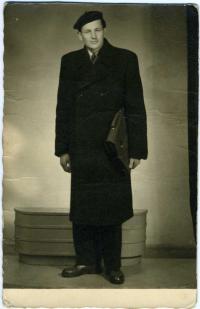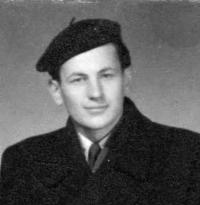Everybody should behave properly and should not listen to people who are dishonest and could once create another “Victorious February “. I value all tradesmen and businessmen because they have to work very hard to prosper.

Download image
Stanislav Došlý was born on May 8, 1928 in Martiněves near Roudnice nad Labem. His father was a railroad construction worker, and his mother stayed at home to raise Stanislav and his two brothers. His family often moved, from Martiněves to Břežánky, and in 1938 to Želenice u Slaného, where Stanislav attended basic school. After the War, the family moved for the last time, to Děčín. Stanislav finished his apprentice studies and worked as a carpenter until 1950. Then he tried to cross the border, was arrested by the border patrol, interrogated and after three months of custody, sentenced to 21 months in prison. He served the whole sentence in the Jáchymov labor camp. After the release, he served the two-year army service and the compulsory six months in rolling mills. Then he went through several occupations, he was twice married and has two sons from the first marriage. He now lives with his second wife in assited living in Litoměřice.



